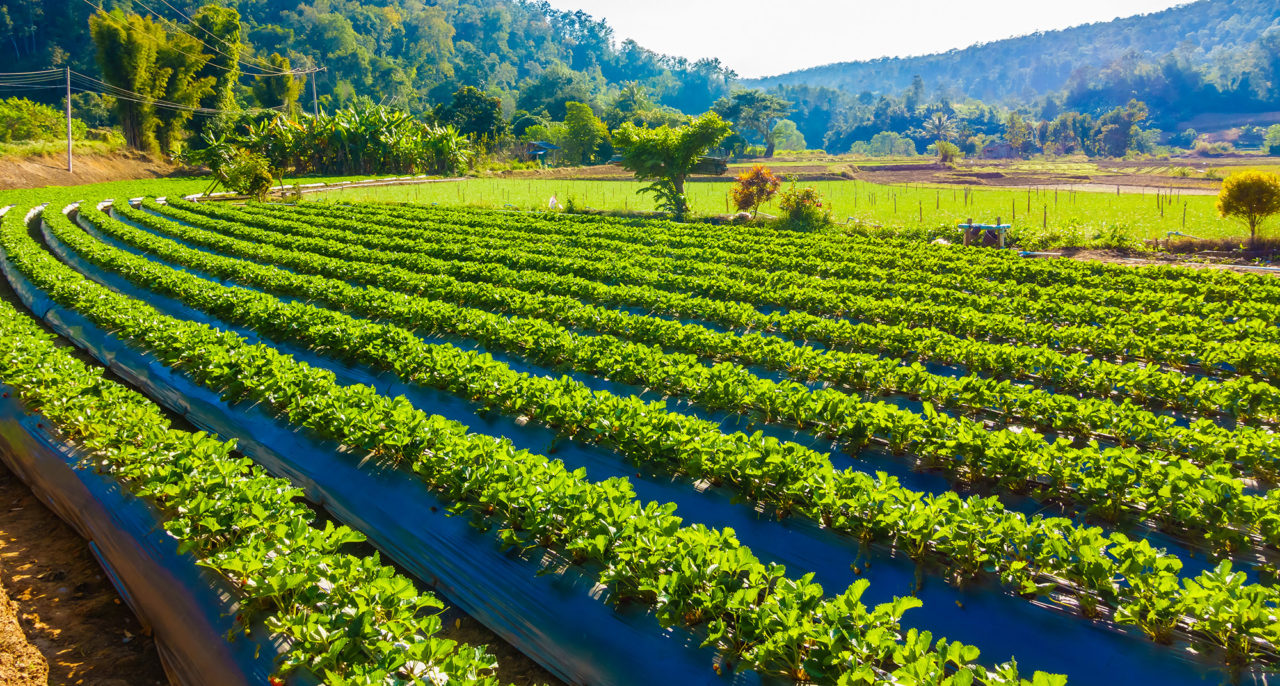Agroecology advocates a new agricultural model that reconciles the economic and environmental challenges of modern agriculture. What are the fundamental scientific and technical principles on which it is based and what challenges does it represent?
Agroecology encompasses both a scientific discipline and a set of agricultural practices that are more respectful of the environment, as well as a social movement corresponding to consumers' expectations concerning their health. Thus, the agroecological green revolution requires a paradigm shift.
Medinbio has developed an aggregative system approach that meets the fundamental principles of agroecology.
The need for an agro-ecological paradigm shift
Over the past 60 years, we have witnessed a massive transformation of agricultural production methods with the ambition of achieving a growing and considerable increase in productivity in the face of demographic pressure. These developments have been made possible by a process of mechanisation of farms, plant and animal breeding schemes, but also by the use of synthetic chemical fertilisers and plant protection products.
Environmental damage
Negative environmental impacts have thus become widespread. The simplification of landscapes and the artificialisation of agrosystems have led to a significant decline in biodiversity. The quality of water and the health of farmers have been severely damaged by the massive use of chemical pesticides.
The agricultural sector is now a major contributor to the growing increase in greenhouse gas emissions. Indeed, it remains largely dependent on fossil fuels. The High Council for the Climate estimated that in 2018, the agricultural sector accounted for 19% of greenhouse gas emissions, 48% of which were emitted by livestock.
Technical impasses
In addition, conventional agriculture faces numerous technical impasses, notably the decline in fertility and soil erosion. These could, in the long term, impact on the viability of this model of agriculture. As a result, the agricultural sector's commitment to ways of reconciling socio-economic issues (particularly competitiveness) and environmental issues in a more efficient and sustainable manner now appears to be a necessity.
The fundamental principles of agroecology
Agroecology is understood globally as a coherent set of knowledge and practices oriented towards the design of production and farming systems based on the functionalities offered by ecosystems. This approach is distinguished by the ambition to reduce the pressures on the environment and to preserve natural resources.
Consequently, agroecology favours systemic approaches to modernising agriculture, which are more respectful of the environment, such as that advocated by Medinbio.
The basic principles of agroecology can be summarised as follows:
- The increase in farm productivity coupled with an increase in environmental performance is a reliable assumption.
- Reducing the dependence of farms on synthetic chemical plant protection products can be achieved by optimising biodiversity in agroecosystems and the resulting virtuous synergistic interactions between soil and plant.
Agroecology is therefore based on the preservation of natural resources, the enhancement of biodiversity and the strengthening of biological regulation in agro-ecosystems in order to reconcile socio-economic and environmental issues in a more sustainable way. It makes it possible to overcome the technical impasses and limit the environmental damage of conventional agriculture.
The Medinbio method, an application of the fundamental principles of agroecology
Médinbio is committed to this third way of reconciling economic and ecological issues, between productivity and respect for the environment and health. Thanks to its unique and innovative method, the company is proposing a paradigm shift that is equal to the challenges: the agro-ecological aggregative system approach.
The Medinbio method defends the objectives of productivity, restoration of ecosystems and enhancement of natural balances with the aim of regulating and treating the problems posed by each crop. It involves full support for the partners with successive phases of auditing, research, experimentation, testing and deployment with training and monitoring.
The Medinbio solution is aimed at producers' organisations, the agri-food industry and mass distribution. It offers crop protection programmes based on a triple action: natural compounds, micro-organisms and natural plant defence stimulators orchestrated and synchronised to offer a satisfactory level of natural protection.
Thus, Medinbio 's expertise can be used to integrate alternatives into an agro-economic itinerary and to create healthy and efficient agro-ecological sectors.


